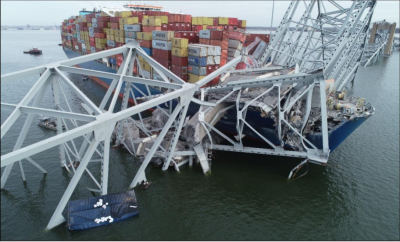If you’ve got employees, you’re probably familiar with the concept of maintenance and cure — the benefits injured seamen receive from employers during recovery from an on-the-job injury.
Jones Act employers have long been frustrated by their inability to recover these benefits when they're later deemed to be illegitimate. Boudreaux v. Transocean Deepwater Inc. appeared to have closed the door on the possibility of recovery, but a recent ruling in Louisiana may have reopened it.
First, some background: In Boudreaux, the plaintiff sued for damages from an on-the-job back injury. Transocean established a McCorpen defense (McCorpen v. Central Gulf Steamship Corp.) to liability and counterclaimed to recover maintenance and cure benefits already paid. Such a defense can be used when the employer requires a medical exam as part of the hiring process and can prove three conditions: (1) that the seaman intentionally hid pertinent medical history; (2) that the history in question was material to the company’s decision to hire the seaman; and (3) that there was a causal link between a concealed, pre-existing condition and the on-the-job injury.
The district court granted summary judgment for Transocean, finding that its McCorpen defense established a right to restitution that had not been previously recognized under maritime law. However, the Fifth Circuit, unwilling to deviate from its longstanding charge to safeguard the well being of seamen and concerned about the effect on settlement talks, reversed the decision. The court also cited different standards involved in the establishment of a McCorpen defense and fraud.
However, a 2015 ruling in the Eastern District of Louisiana suggests that employers may not be without recourse. In Crow v. Marquette Transportation Company Gulf Inland LLC, the plaintiff filed suit as a result of personal injuries allegedly suffered while working aboard Marquette's 2,000-hp towboat Lady of Guadalupe. Marquette eventually concluded that Crow was not injured on the job, but was hurt off duty while fishing.
Marquette made a counterclaim for fraud. It was initially denied, but was later allowed to proceed by the district judge. The court focused on the difference between an undisputed injury during the course and scope of employment, and the absence of evidence of an incident along with the allegations of an off-the-job injury. The jury eventually rendered a defense verdict for Marquette without awarding damages on the counterclaim.
This ruling to allow the counterclaim is significant. It could provide the basis for an avenue of recovery of maintenance and cure if the employer can establish a legitimate fraud claim against the employee. In the rush to determine potential liability and causation, employers can sometimes neglect to examine the basic facts surrounding the alleged incident. This ruling demonstrates the importance of that early analysis. Did the incident actually occur and could it have resulted in the injury in question?
Even when some evidence of an incident exists, the possibility of a fraud claim based on conflicting evidence could help to limit employers’ maintenance and cure liability and possibly provide an avenue for recovery of benefits paid.





